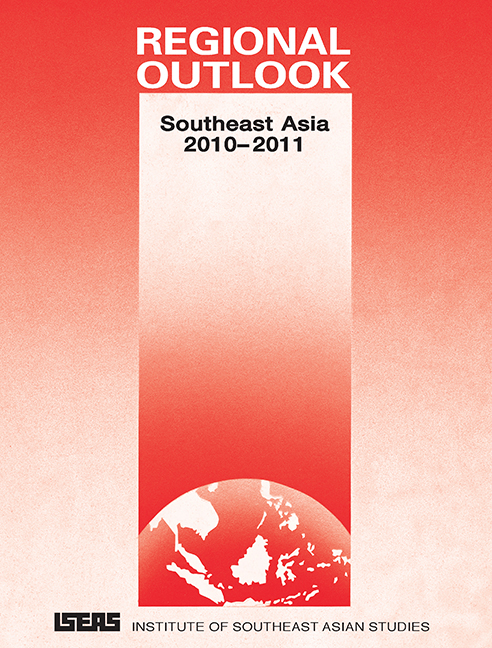Southeast Asia's Security and Political Outlook
from POLITICAL OUTLOOK
Published online by Cambridge University Press: 21 October 2015
Summary
The increasing frequency with which natural disasters have recently struck Southeast Asia — in 2009 earthquakes and tropical storms resulted in thousands of deaths and in severe displacement in Indonesia, the Philippines, Vietnam, and other parts of the region — has sharpened ASEAN's focus on non-traditional security (NTS) challenges. Having learned from the 2004 tsunami, the grouping has established various mechanisms for regional disaster management and emergency response to facilitate rapid, coordinated action when needed. At the same time, and despite terrorist attacks in Jakarta in July 2009, there is no indication that “man-made” security risks are on the increase in Southeast Asia. Overlapping territorial claims in the South China Sea and disputed land borders (most prominently the still lingering Thai-Cambodian conflict over a 4.6-square-kilometre area around Preah Vihear Temple), piracy, human trafficking, environmental hazards caused by trans-boundary haze pollution and illegal logging, food insecurity and other NTS issues remain causes for serious concern. However, national and regional policy approaches to these challenges have been strengthened, not least through increasing cooperation with extra-regional powers on security matters. The overall stability and security of Southeast Asia will further benefit from the current four-way competition among the United States, Japan, China and, to a lesser extent, the European Union for regional influence that has resulted in the growing constructive, involvement of these powers in the management of regional order.
Barack Obama's victory in the U.S. presidential race created an immediate expectation of improvement and expansion in Washington's relations with Southeast Asia. While the preceding administration of George W. Bush had briefly given ASEAN prominent attention in its “global war on terror”, there can be little doubt that Washington was losing interest in ASEAN as a regional bloc and increasingly opting for bilateral rather than multilateral approaches towards Southeast Asia and its constituent states during 2001–08. Hopes for a post-Bush revival of multilateralism and an upgrading of U.S.-ASEAN relations were not disappointed. In February 2009 Hillary Rodham Clinton not only included Indonesia on her first overseas trip after taking office but also paid the first ever visit of a U.S. Secretary of State to the ASEAN Secretariat.
- Type
- Chapter
- Information
- Regional OutlookSoutheast Asia 2010-2011, pp. 3 - 19Publisher: ISEAS–Yusof Ishak InstitutePrint publication year: 2010



